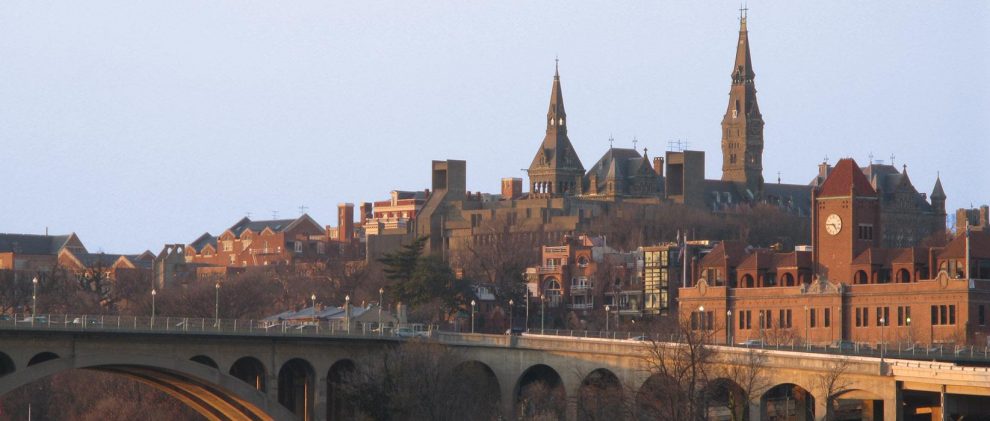Georgetown students vote overwhelming in favor of $27 fee for slavery reparations originally appeared on abcnews.go.com
Georgetown University could become the first college in the nation to mandate a fee to benefit descendants of slaves sold by the university nearly 200 years ago — a debate that takes place against the backdrop of a broader political conversation unfolding on the 2020 presidential campaign trail about reparations.
By almost a 2-to-1 margin, students approved the measure, which still must be approved by the university to go into effect.
The school’s undergraduates voted Thursday on the referendum, which would increase tuition by $27.20 per semester to create a fund benefiting descendants of the 272 slaves sold to pay off the Georgetown Jesuits’ debt — a move that saved the university financially.
The results of the referendum are as follows: 66.08% for yes (2541 votes), 33.92% for no (1304 votes). This means that the referendum passes.
— GUSA Elections (@GUSAElections) April 12, 2019
Todd Olson, vice president for student affairs at Georgetown University, in a statement issued after the vote, lauded the students’ efforts saying ” university values the engagement of our students and appreciates that 3,845 students made their voices heard in yesterday’s election. Our students are contributing to an important national conversation and we share their commitment to addressing Georgetown’s history with slavery.”
The university has vowed to “carefully review the results of the referendum, and regardless of the outcome, will remain committed to engaging with students, Descendants, and the broader Georgetown community and addressing its historical relationship to slavery,” Matt Hill, the university’s media relations manager, told ABC News in a statement.
“The Jesuits sold my family and 40 other families so you could be here,” sophomore Melisande Short-Colomb, a Georgetown student, said during a town hall to discuss the issue last week.
She’s one of four students currently attending the university under an admissions policy that considers the descendants of the 272 slaves as “legacy” students.
That group also includes Elizabeth Thomas, who will receive her master’s degree from Georgetown University in May and is a desk assistant at ABC News in Washington. She’s a descendant of Sam and Betsy Harris, who were enslaved and sold by Georgetown University in 1838. If the current referendum passes, it’s unclear whether Thomas would receive any reparations in the future.
A week ahead of the vote, Short-Colomb joined 100 other students packed into Georgetown’s Leavey Hall on campus as the gathering mulled the impact of the proposal.
“No one in this room was here in 1838 when this happened,” Short-Colomb said. Still, she thinks the funds could help make amends for the university’s slave-holding past.
“But we have a chance today to make a difference, so I’m going to pay my $54,” she said, referring to the two semesters before she’d graduate.
… #dobetter #voteYES #GU272 @Students4GU272 @SandraGreenTho2 @arothmanhistory @DrMChatelain @Georgetown pic.twitter.com/TAwYj3PF7G
— Chef Méli (@chef_meli) April 9, 2019
A longstanding political debate
The conversation on the Washington campus reflects a larger discussion as reparations take the stage ahead of the 2020 election. A number of the Democratic presidential candidates have weighed in on the issue of reparations for African American descendants of slaves.
The issue of reparations isn’t new. It’s been contentiously refuted since the end of the Civil War. One of the earliest proposals came more than 150 years ago when a general suggested Confederate-owned land should be confiscated and divided up to provide the family of freed slaves 40 acres and a mule.
Story cited here.
























